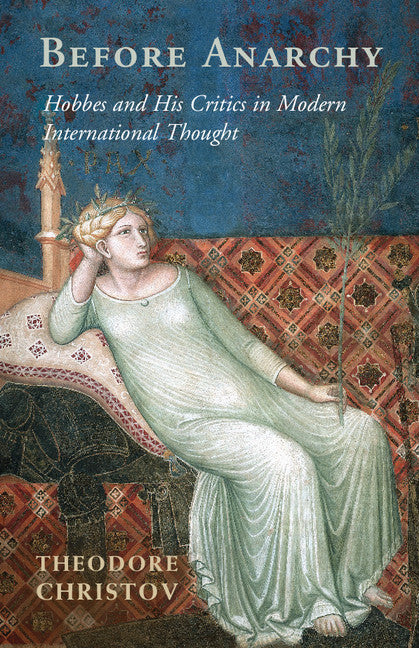Freshly Printed - allow 8 days lead
Couldn't load pickup availability
Before Anarchy
Hobbes and his Critics in Modern International Thought
Against the twentieth-century 'Hobbesian anarchy', Before Anarchy reconsiders the originality and reception of Hobbes's interpersonal and international state of nature.
Theodore Christov (Author)
9781107114531, Cambridge University Press
Hardback, published 11 January 2016
308 pages, 1 b/w illus.
23.6 x 16 x 2.6 cm, 0.62 kg
'The title of this book does not quite give away the rich variety of knowledge it contains … Theodore Christov does a fine job of explaining how Hobbes's state of nature has been used as a starting point for realist theories in international relations scholarship … The hidden gem in this book is Christov's extensive treatment of the international thought of German jurist Samuel Pufendorf.' Laurie M. Johnson, The European Legacy
How did the 'Hobbesian state of nature' and the 'discourse of anarchy' - separated by three centuries - come to be seen as virtually synonymous? Before Anarchy offers a novel account of Hobbes's interpersonal and international state of nature and rejects two dominant views. In one, international relations is a warlike Hobbesian anarchy, and in the other, state sovereignty eradicates the state of nature. In combining the contextualist method in the history of political thought and the historiographical method in international relations theory, Before Anarchy traces Hobbes's analogy between natural men and sovereign states and its reception by Pufendorf, Rousseau and Vattel in showing their intellectual convergence with Hobbes. Far from defending a 'realist' international theory, the leading political thinkers of early modernity were precursors of the most enlightened liberal theory of international society today. By demolishing twentieth-century anachronisms, Before Anarchy bridges the divide between political theory, international relations and intellectual history.
Part I. Hobbesian Variations: 1. Introduction: Hobbes after anarchy
2. Hobbes before anarchy
3. Hobbes without anarchy
4. Hobbes against anarchy
Part II. Hobbesian Receptions: 5. Pufendorf's anti-Hobbesian camouflage
6. Pufendorf's international thought
7. Rousseau and the quest for peace
8. Vattel the sorry comforter
Epilogue: globalizing political thought.
Subject Areas: International relations [JPS], Political science & theory [JPA], History of ideas [JFCX], Society & social sciences [J], Modern history to 20th century: c 1700 to c 1900 [HBLL]


